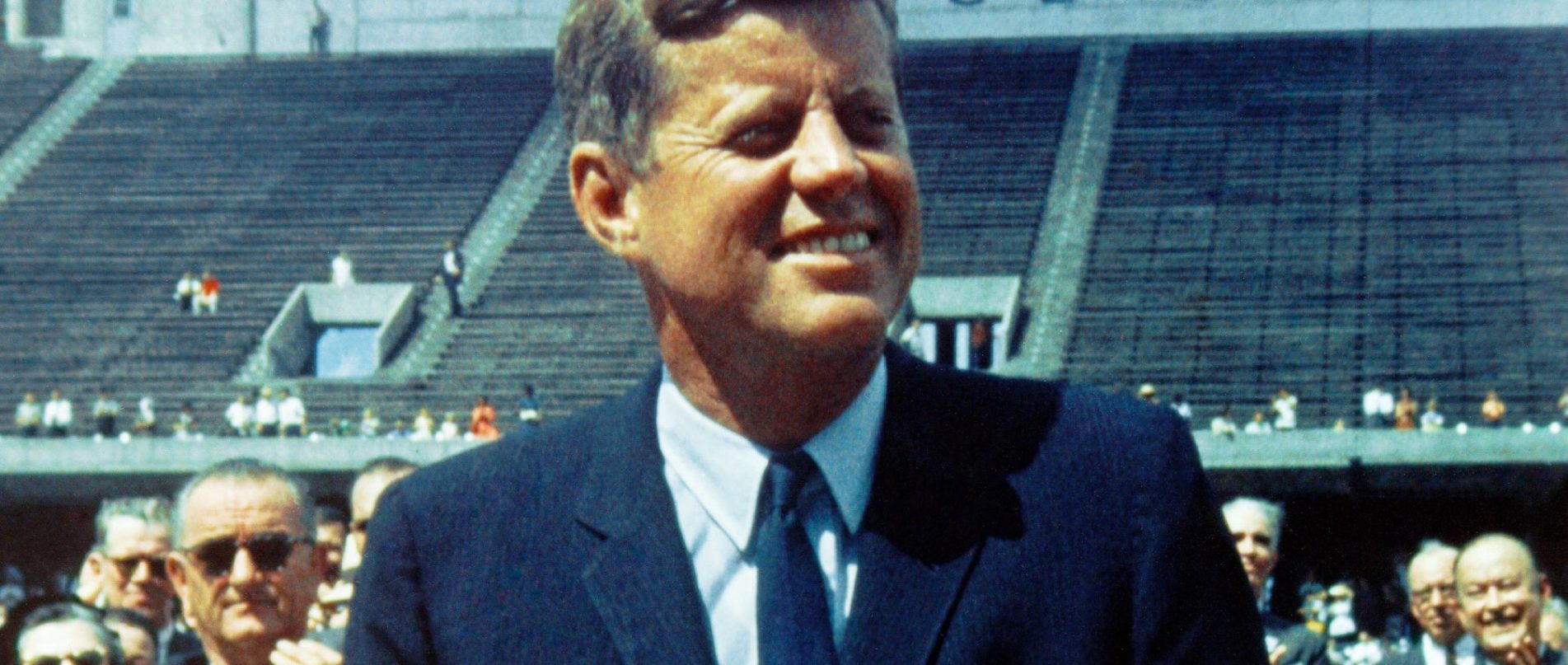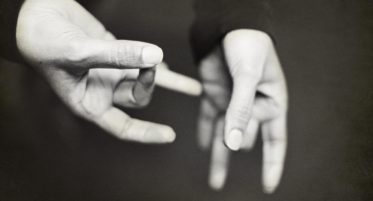
Prompt Images
{I Know} {Where} I Was When – JFK & J6: And to the Republic for Which It Stands
Mom gasped. That’s what I remember most vividly. She had been singing along to one of her favorites, Jo Stafford’s “You Belong to Me” when the song was interrupted by a deep baritone announcement. Her eyes widened, and she inhaled sharply. She put the hot iron down, fumbled with its braided cord that tangled in her apron, and moved to turn up the radio’s volume. I was four-and-a-half years old (the half is important when you’re that age), sitting in the kitchen of our modest Brooklyn apartment above the fishmongers on 13th Avenue. Milk and cookies had my full attention. There’s no reason I’d remember six decades later that Mom was at the other end of the table that afternoon, laboring over an ironing board splayed out near the window that led to the fire escape. No reason other than… the gasp that rocked a four year-old’s world.
The news blurting from the radio balanced on top of the refrigerator was that President John Fitzgerald Kennedy had been killed in Dallas that autumn Friday. Some hours later, my mom, dad, and two brothers were glued to the black and white TV. We watched a coffin offloaded, with little grace, from Air Force One to a waiting ambulance. Sadness and shock that we thought could get no more profound ratcheted upward again when we witnessed the hollow looks on the bereaved brother’s and new widow’s faces; these images put an exclamation point on the day’s surreal feeling. On the tarmac, a few yards away, a new President with oversized glasses and a Texas accent to which no four year-old Brooklyn kid’s ear could possibly be attuned made remarks designed to comfort.
The event, I now know decades later, transfixed a nation’s attention in a way that was different when the news of President Roosevelt’s fatal stroke had spread 18 years earlier.
Kennedy’s death grabbed the entire populace like a vise and with an immediacy that seems quaint and impossible for the pre-internet, pre-Twitter era.
Those four days, November 22-25, 1963, our TV, and TVs across America and the world, showed us the coffin lying in state; the shooting, in real time, of the assassin in a Dallas police station; the funeral; John-John’s salute; world leaders and three U.S. Presidents marching down a D.C. street following a riderless horse with polished boots placed backwards in the saddle’s stirrups, Black Jack clomping and fussing behind the caisson bearing the flag-draped casket; the internment; Jackie lighting the eternal flame. An unprecedented thing for the television age, the long weekend’s events riveted us all borne of JFK’s charisma and the abruptness of a death of someone so vibrant and well-known.
It made a permanent impression on me. I have read a dozen books on the topic, am aware there are tens of thousands more. I have watched the Zapruder film in enhanced, frame-by-frame detail showing JFK’s head exploding; simultaneously gripping and repugnant. I have pictures of the man on the walls of my office; as a junior Senator from Massachusetts on the cover of a 1957 issue of TIME magazine; the front page of the NY Post printed the day after Senator Robert Kennedy’s assassination, showing a side-by-side image of John and his brother; as a newlywed oozing wealth carrying an alligator briefcase in a Montreal train station standing next to his new bride, Jacqueline Bouvier Kennedy, adorned in mink and with a matching alligator purse; even a giant 1960 campaign button. JFK has fascinated me ever since Mom’s late November gasp.
There have been other events that grabbed the nation’s consciousness; the Watergate hearings, the Challenger explosion, President Reagan’s shooting, Columbine, Bush v. Gore, September 11th, Sandy Hook Elementary School, Election Day 2016, George Floyd’s murder, Uvalde. I remember them all; important, epic, historic.
I have other memories; ahistorical and unimportant, except to me. Elton John at MSG; riding the PCH in my buddy’s just-purchased Alfa Romeo Spider Veloce; falling in love with the woman who would become my wife; getting lost driving my first fare during the part-time taxicab driver gig in college; Magic’s Spartans beating Bird’s undefeated Sycamores; Super Bowl III with my brother; Holmes and Norton toe-to-toe for 15 rounds in ’78; Lake Huron sunsets; the perfectly married combination of sea bass and chardonnay at Michael Mina’s restaurant in Vegas; my children’s youth (Vinny heaving TDs for the Jets, picking pumpkins in Romeo, Michigan); the ’86 Mets; Marv Albert shouting “Here comes Willis;” the ’94 Stanley Cup; our dogs’ deaths. Throw in grad school’s angst, a few stories from work and one has the sum total of what, more or less, the brain classifies as living a life.
No one alive today remembers where they were when President Lincoln was assassinated. Those who remember the 1929 stock market crash, the ensuing Depression, the end of Prohibition, the Holocaust, the atomic bombings of Hiroshima and Nagasaki are dwindling in number. When similarly small numbers remember, late this century, the assault on the U.S. Capitol, another gasp-worthy event that played out on hundreds of millions of TVs across the country on January 6th 2021, what will they remember? I cannot predict the future, but I can invoke an admonition from the past; Benjamin Franklin’s words when asked in 1787 by Philadelphia socialite, Elizabeth Willing Powell, if, now that the Constitution was signed, whether we had a monarchy or a republic. “A republic, if you can keep it,” came the famous reply.



